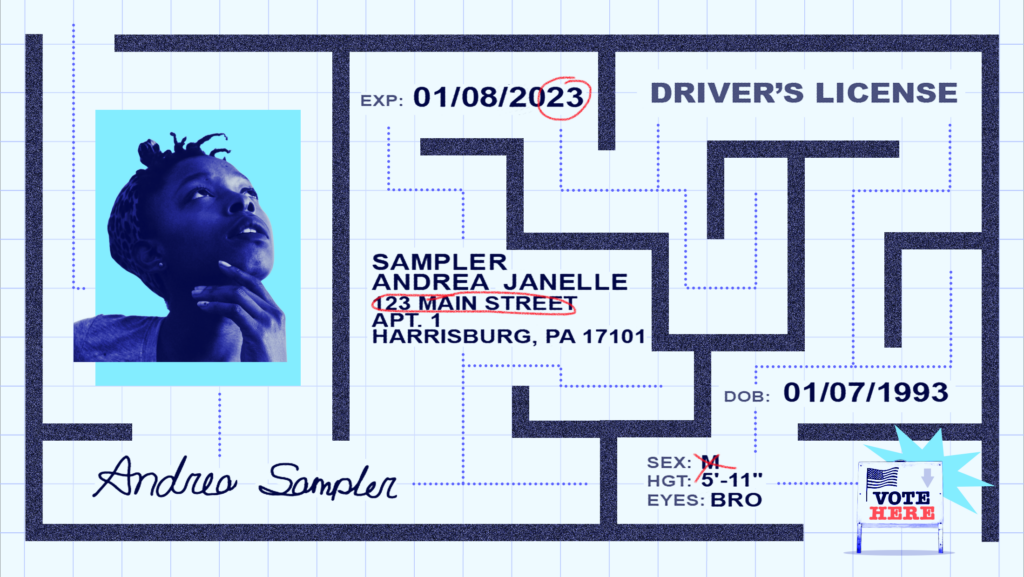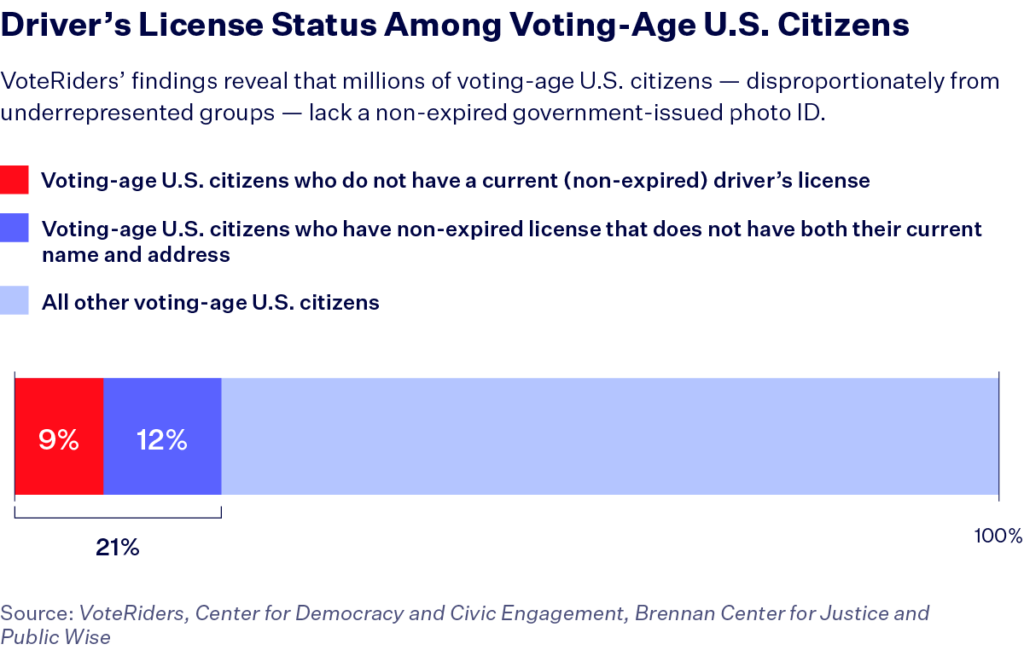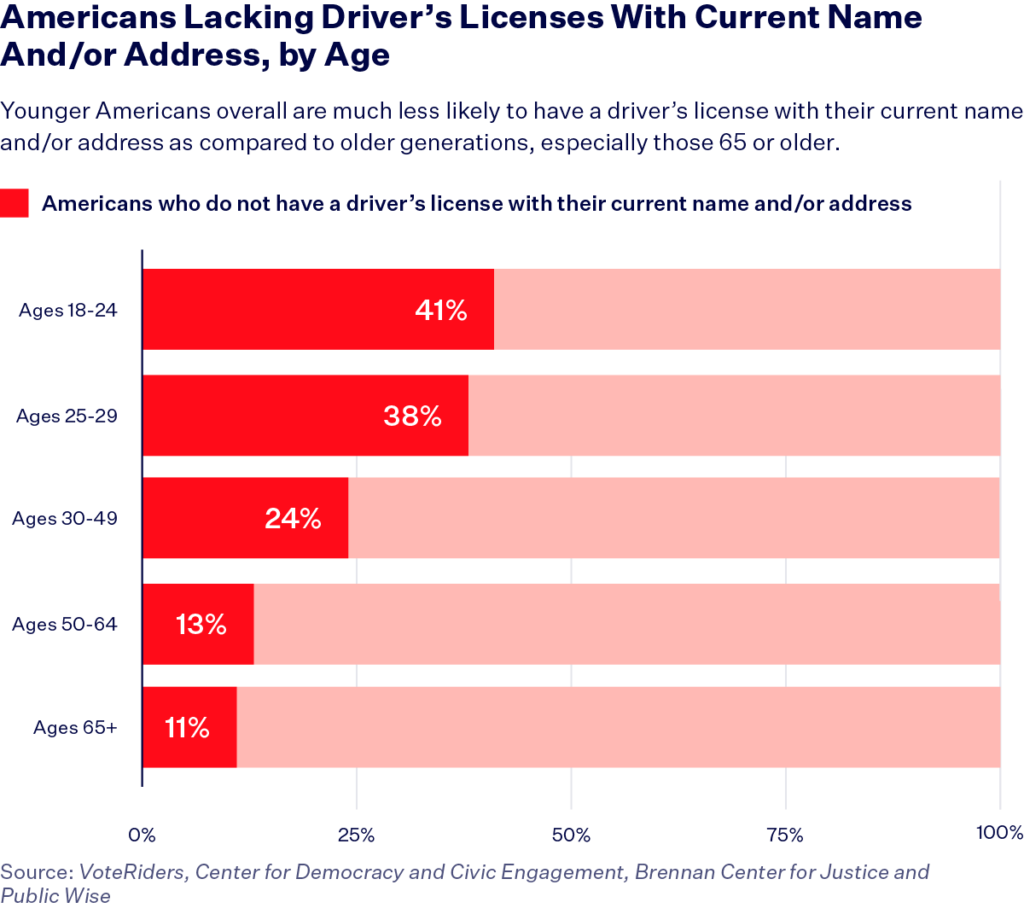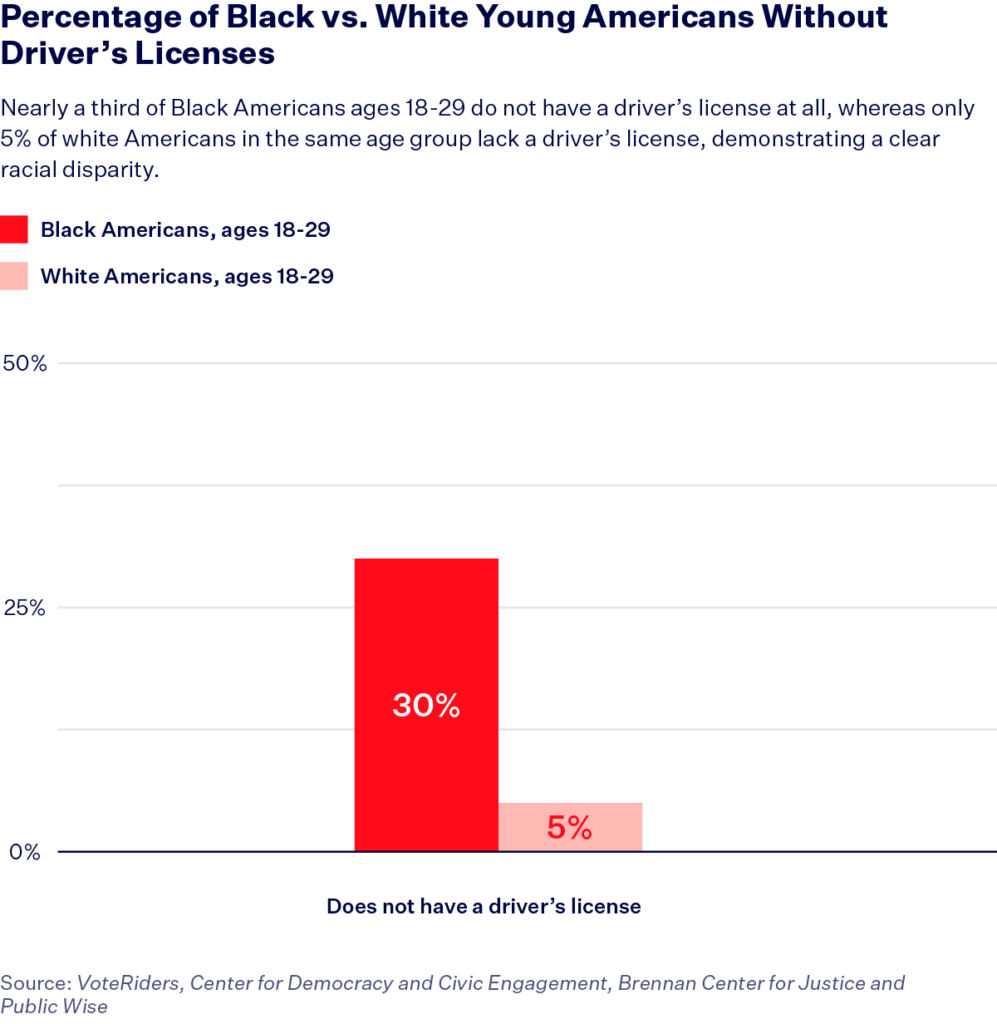New Research Ahead of 2024 Confirms Voter ID Laws Impact Millions

When Americans head to the polls this year, voters in 38 states — more than ever before — will have to confront a maze of voter ID laws that request or require a specific form of identification to cast a ballot that counts.
Throughout my career as a voting rights litigator, I’ve repeatedly seen the impact of tightening ID restrictions on voters. The myth perpetuated by some legislators that “everyone has an ID” is simply not based in reality. I’ve advocated for students who couldn’t vote using their student ID, people who lack transportation to access an ID-issuing office and those who can’t afford to obtain the underlying documents like a birth certificate that they need to secure an ID. During one trial I litigated, we actually had to request special permission from the judge for a witness to even be able to enter the courthouse because they lacked the ID required to do so.
I now serve as the legal director for VoteRiders, the nation’s leading organization focused on voter ID. We provide accurate, up-to-date information on voter ID laws in every state and offer free individual assistance to citizens who need help to obtain an accepted form of ID for voting, including free transportation, legal assistance and financial support.
With ID laws on the rise, 17 states have passed new or stricter ID laws since the 2020 elections, further emphasizing the need to have an updated understanding of who lacks an ID in America today, what the barriers are to accessing government-issued identification and what people know about ID laws in their states.
To answer these questions ahead of the 2024 elections, VoteRiders embarked upon a multi-phase national research project with our partners at the Center for Democracy and Civic Engagement (CDCE) at the University of Maryland, the Brennan Center for Justice and Public Wise. Fielded by SSRS in the fall of 2023, our national survey was designed to measure the state of ID access in America today, as well as the extent to which voters understand complicated and ever-changing ID laws.
Our findings confirmed what we at VoteRiders have known for quite some time through our work across the country: voter ID laws are wreaking havoc on the voting process, confusing voters and restricting the right to vote. And these rules harm some communities more than others — effectively distorting our electorate and undermining our democracy.
Our research results are based on a representative sample of the U.S. adult citizen population, with an oversample of some of the communities that we know are most harmed by voter ID laws, such as 18–24-year-olds, Black, Hispanic, Latinx and low-income voters. We also included a random sample of prepaid cellular phone numbers, knowing from experience that the most marginalized eligible voters disproportionately use them.

Our findings reveal that millions of Americans — disproportionately from underrepresented groups — lack a current government-issued photo ID. Nearly 21 million people, or just under 9% of voting-age U.S. citizens, do not have a current (non-expired) driver’s license. Another 28.6 million (12%) have a non-expired license, but the license does not have both their current name and address. Citizens of color were 3.7 times more likely to be without an unexpired license or state ID card than white adult citizens.
In addition, the survey found that around 34.5 million voting-eligible citizens have an ID but in a form that may cause voting difficulties in states with strict photo ID laws — meaning that their ID does not reflect their current address, name or gender.
Millions of Americans may lack the wherewithal to meet the rising barriers to the ballot box imposed by voter ID laws, but their desire to vote remains strong.
Age is the single most powerful predictor of whether or not an individual has an unexpired state-issued ID showing current information, with more than 41% of 18–24-year-olds lacking an ID with their current address. Young people are more mobile, change addresses more often, are more gender fluid and have lower incomes — so they naturally struggle the most with keeping their information up to date. Cost restrictions and easy access to ride-share apps have also led to a historic decline in the percentage of 18-30 year olds with a driver’s license.
Race is also a strong predictor of ID access among young people, with Black youth being the most likely to lack a driver’s license, followed by Hispanic, other and Asian or Pacific Islanders. Only about 70% of Black 18–29-year-olds have a driver’s license and only half of that 70% have a driver’s license with their current name and address.

While there are clear inequities in ID access, it’s important to note that Americans of all party affiliations and political ideologies are deeply impacted —directly or indirectly — by voter ID laws. Republican voters may actually be more likely to be kept away from the ballot box due to disproportionately residing in states with strict photo ID laws.
The VoteRiders/CDCE/Brennan Center/Public Wise survey also sought to pinpoint the obstacles that prevent Americans from acquiring the IDs they increasingly need to vote, including cost, time and the absence of underlying documents. The results indicate that these barriers are powerful, but not insurmountable. These are the exact types of challenges that our staff and trained volunteers at VoteRiders are ready to help voters solve.
Over the nearly 12 years of VoteRiders’ existence, we have observed that ID laws lead to confusion among voters. This past November, calls and texts to our Voter ID Helpline increased by 287% compared to the last non-federal election year of 2021. Importantly, this survey has provided us with concrete numbers that underscore this widespread confusion about voter ID laws, particularly in the context of states having passed new ID laws at an unprecedented pace since 2020 and with many of these laws currently being litigated — leaving voters uncertain what rules are in place.

Our survey revealed that over half of Americans living in states requiring photo ID to vote in-person do not know their state’s laws, and do not realize that they will need this type of identification to successfully cast a ballot.
Ensuring access to the ballot box shouldn’t be a partisan issue, and our survey confirmed that the vast majority of Americans believe that it isn’t. A vast majority — 81% — of respondents expressed broad and bipartisan support for programs in high schools that would give free government-issued IDs to students who lack a driver’s license as a way of preparing the next generation to not only vote, but also be able to access employment opportunities and thrive.
While impediments to securing IDs are steep for many, at VoteRiders, we’re committed to addressing these challenges head-on. Our on-the-ground programs in eight states along with virtual support nationwide are available for free to all voters. Every election, we’re joined by thousands of volunteers who send texts, make phone calls, and write letters to at-risk voters in light of new voter ID laws.
The upcoming elections demand a collaborative effort to ensure the voices of the most marginalized voters are heard. Millions of Americans may lack the wherewithal to meet the rising barriers to the ballot box imposed by voter ID laws, but their desire to vote remains strong. It’s time for us to work together to safeguard the bedrock foundation of our nation.
Ceridwen Cherry is the legal director of VoteRiders, the nation’s leading organization focused on voter ID.